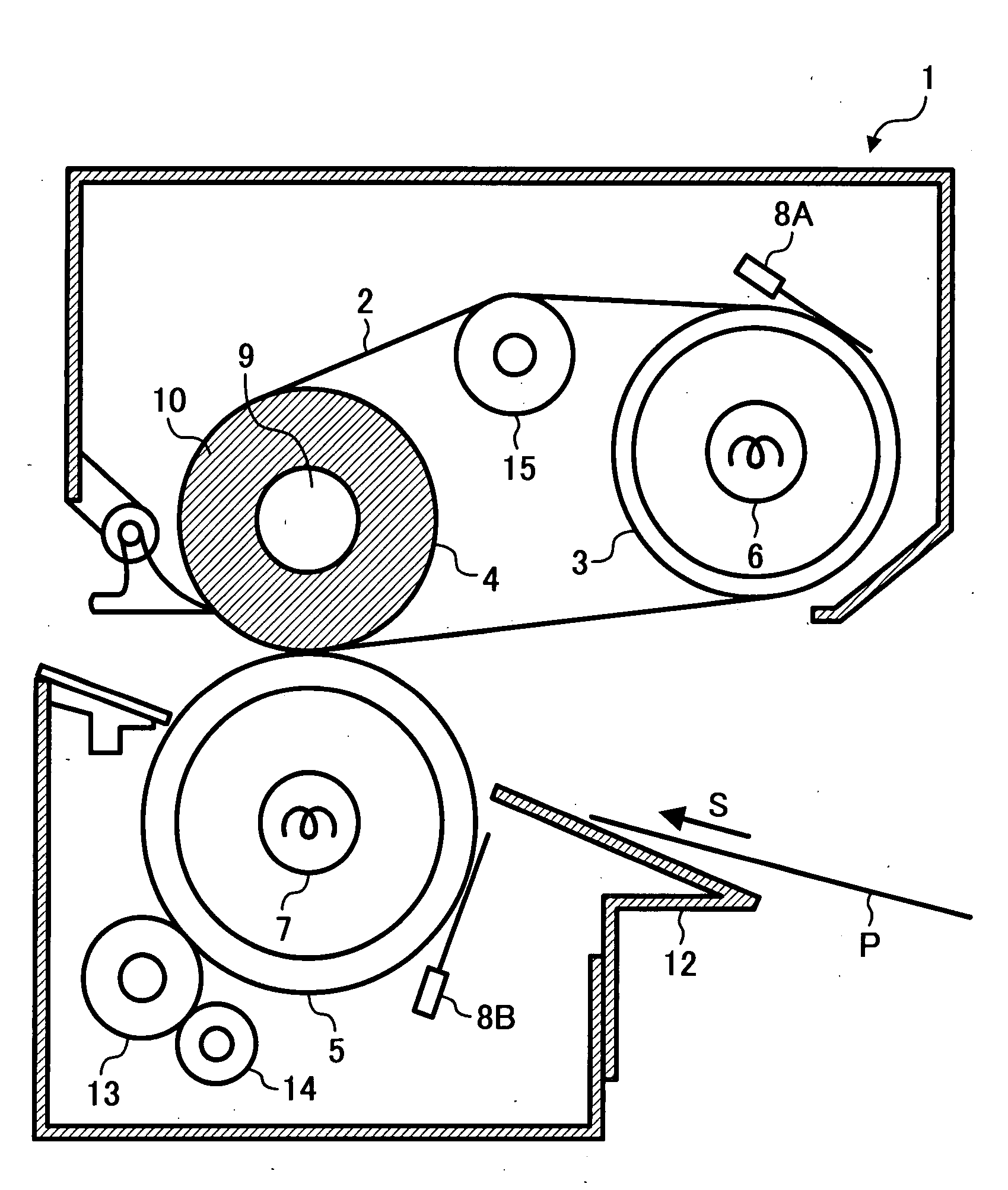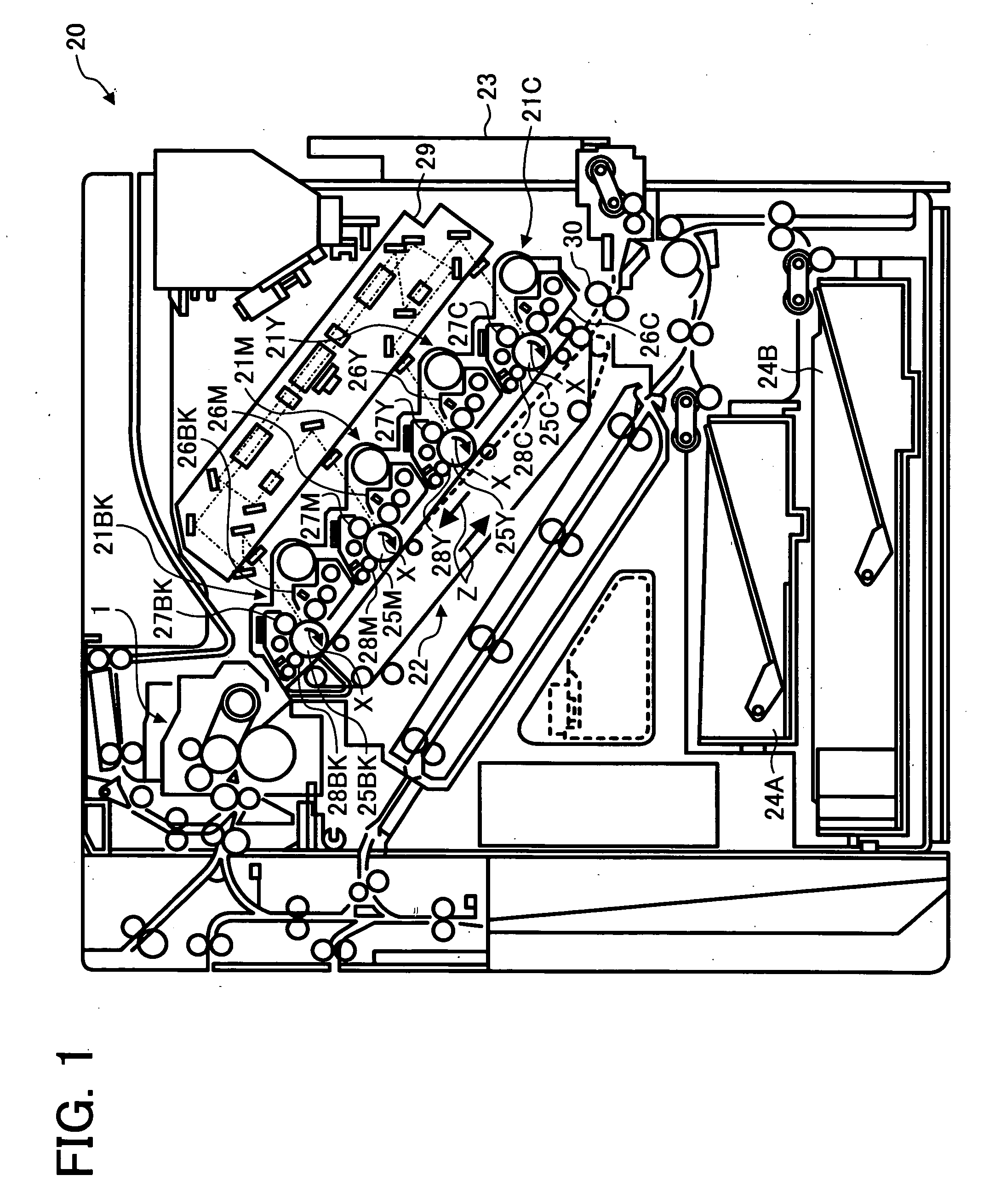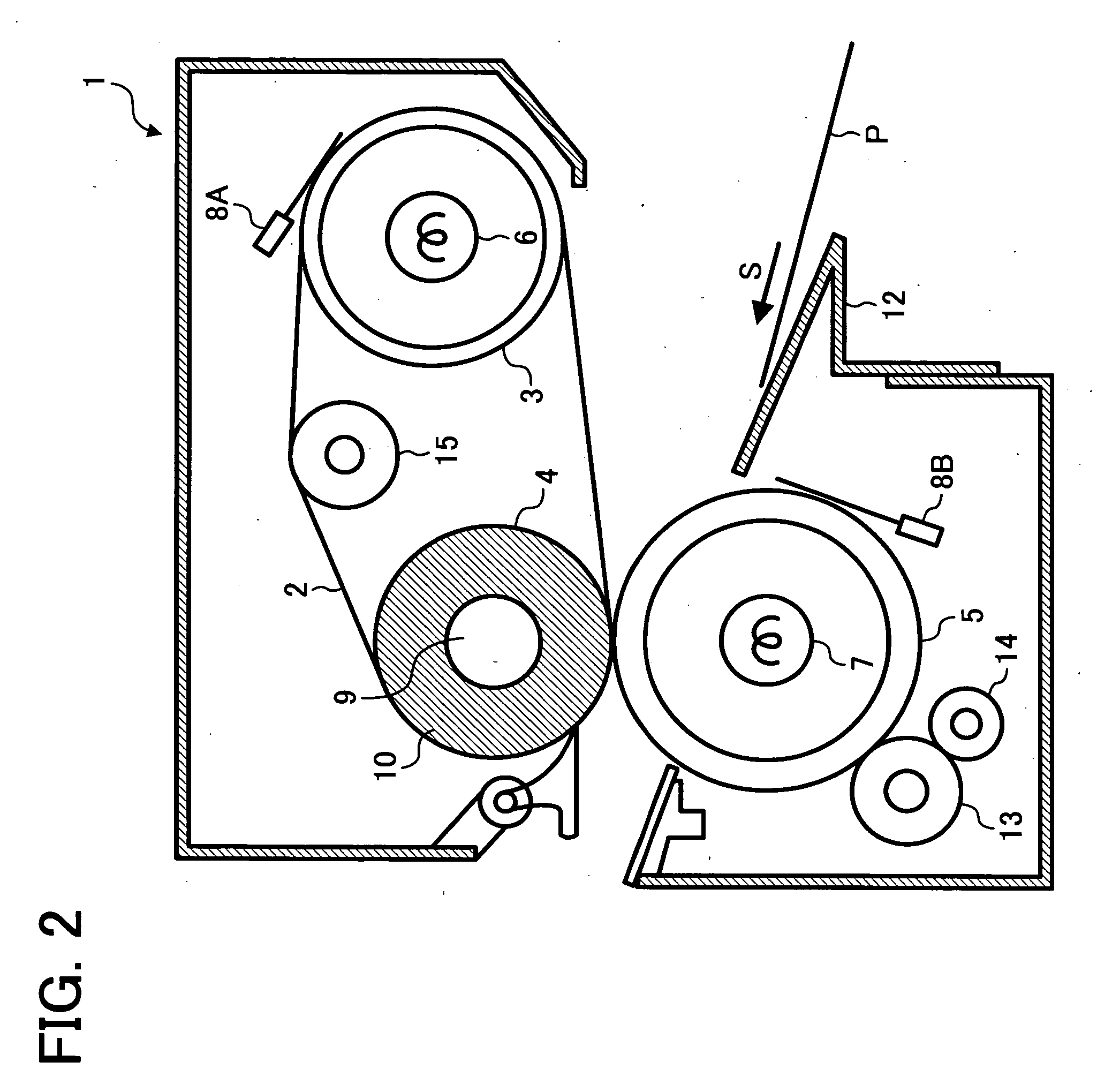Image forming apparatus, fixing apparatus, toner, and method of preparing toner
a technology of fixing apparatus and forming apparatus, which is applied in the direction of electrographic process apparatus, instruments, electrographic process, etc., can solve the problems of low fluidity and transferability, quick increase in temperature of fixing belt, staining and damaging recording medium,
- Summary
- Abstract
- Description
- Claims
- Application Information
AI Technical Summary
Benefits of technology
Problems solved by technology
Method used
Image
Examples
Embodiment Construction
[0030] In describing example embodiments illustrated in the drawings, specific terminology is employed for the sake of clarity. However, the disclosure of this patent specification is not intended to be limited to the specific terminology so selected and it is to be understood that each specific element includes all technical equivalents that operate in a similar manner. Referring now to the drawings, wherein like reference numerals designate identical or corresponding parts throughout the several views, particularly to FIG. 1, an image forming apparatus according to an example embodiment of the present invention is explained.
[0031] As illustrated in FIG. 1, an image forming apparatus 20 includes an exposure unit 29, image forming units 21C, 21Y, 21M, and 21BK, a bypass tray 23, paper trays 24A and 24B, a registration roller 30, a transfer unit 22, and / or a fixing unit 1.
[0032] The image forming unit 21C includes a charger 27C, a photoconductive drum 25C, a development unit 26C, a...
PUM
| Property | Measurement | Unit |
|---|---|---|
| Angle | aaaaa | aaaaa |
| Length | aaaaa | aaaaa |
| Length | aaaaa | aaaaa |
Abstract
Description
Claims
Application Information
 Login to View More
Login to View More - R&D
- Intellectual Property
- Life Sciences
- Materials
- Tech Scout
- Unparalleled Data Quality
- Higher Quality Content
- 60% Fewer Hallucinations
Browse by: Latest US Patents, China's latest patents, Technical Efficacy Thesaurus, Application Domain, Technology Topic, Popular Technical Reports.
© 2025 PatSnap. All rights reserved.Legal|Privacy policy|Modern Slavery Act Transparency Statement|Sitemap|About US| Contact US: help@patsnap.com



